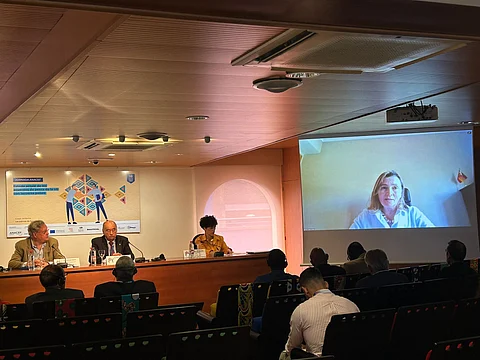

The Spanish Secretary General of Fisheries, Isabel Artime, talked during the annual conference of the National Association of Freezer Trawler Owners of Cephalopods (ANACEF).
Ministerio de Agricultura, Pesca y Alimentación
For the Spanish Government, the timely renewal of all fishing agreement protocols that the European Union (EU) maintains with third countries is "essential".
Therefore, legal security will be provided, and the responsible and sustainable activity of the fishing fleets in their waters will be maintained.
During the opening of the annual conference of the National Association of Freezer Trawler Owners of Cephalopods (ANACEF), the Secretary General of Fisheries, Isabel Artime, focused on the agreements with West African countries because "they offer demersal fishing opportunities under different modalities".
Additionally, Artime mentioned the community fisheries management system, which is "sustainable" and "efficient", based on the best scientific knowledge, and allows for excellence in the fight against illegal, unreported, and unregulated fishing.
These agreements are based on the conservation of fishery resources and environmental sustainability, as well as on job creation and food security thanks to fish protein supply to local markets.
Sustainable fishing cooperation agreements allow EU vessels to access the waters of third countries to fish for surplus resources. Currently, there are 11 sustainable fishing agreements, of which 6 are with West African countries.
They play a significant role in maintaining a competitive and sustainable Spanish fleet. More than 80 vessels have engaged in fishing activities in the Atlantic, Indian, and Pacific Oceans in 2024.
In early July, The Minister of Agriculture, Fisheries, and Food, Luis Planas, confirmed that Spain will advocate for a greater prominence of fishing policies at the European level following the recent elections to the Parliament and in light of the imminent formation of the European Commission.
